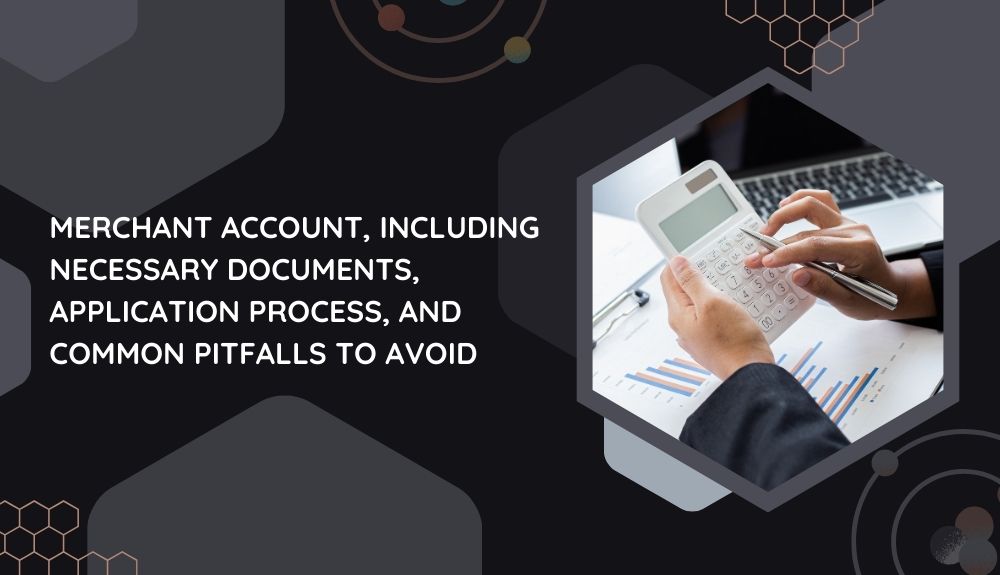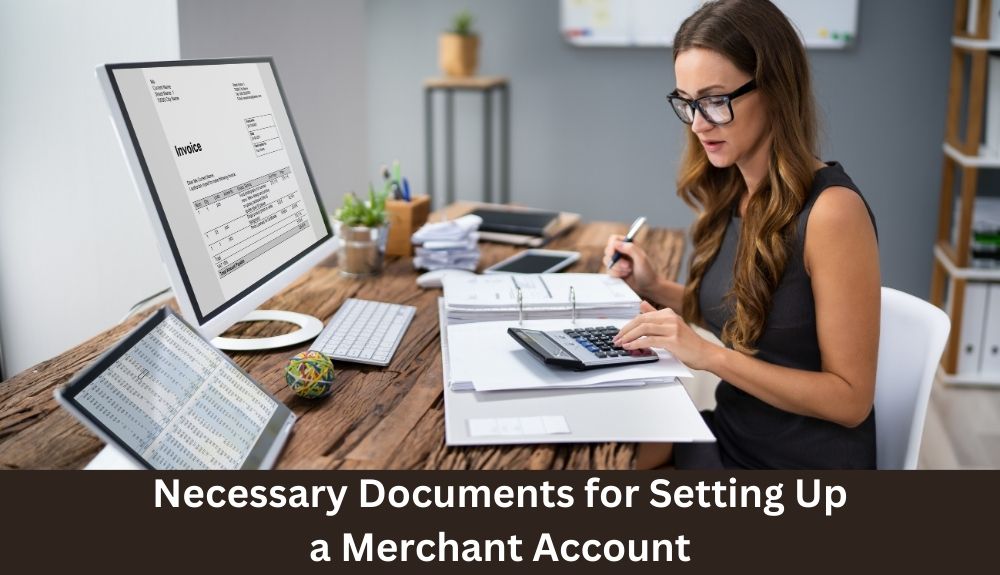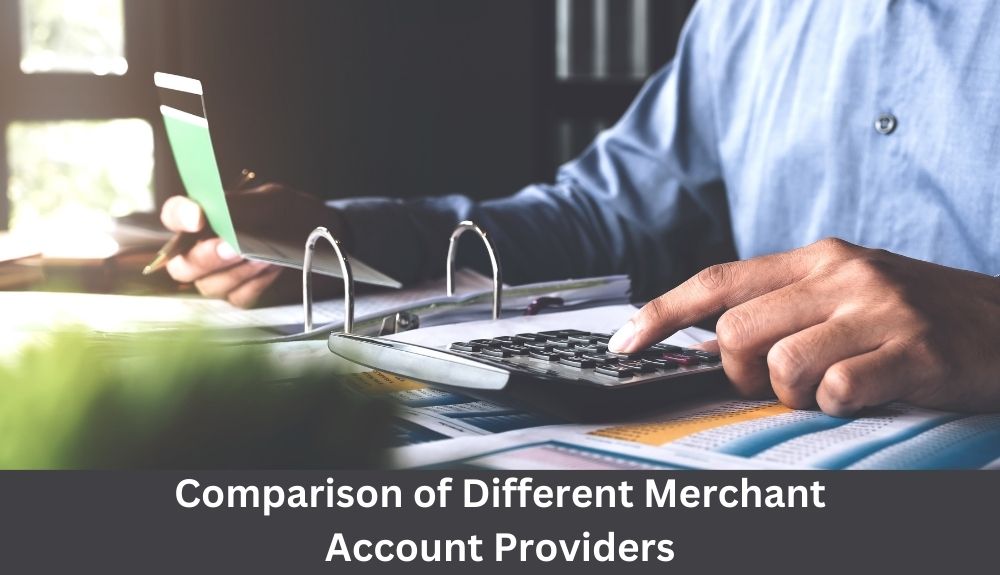
By max March 1, 2024
Are you a business owner looking to expand your payment options and boost sales? Setting up a merchant account could be the game-changer you’ve been waiting for! In this step-by-step guide, we’ll walk you through everything you need to know about setting up a merchant account, from necessary documents to common pitfalls to avoid. Get ready to streamline your payment process and take your business to new heights!
What is a Merchant Account?
A merchant account is like a digital gateway that allows businesses to accept payments made by credit or debit cards. It’s essentially a virtual holding tank where funds from card transactions are temporarily held before being transferred to the business owner’s bank account.
Think of it as a bridge connecting your customers’ payment methods to your bank account. Without a merchant account, you wouldn’t be able to process card payments online or in-store, limiting your ability to cater to customers who prefer cashless transactions.
Merchant accounts are essential for businesses looking to offer convenient and secure payment options. By setting up a merchant account, you’re opening doors to increased sales opportunities and expanding your customer base beyond those who carry physical cash.
Having a merchant account is crucial in today’s digital age where cashless transactions reign supreme.
Why Do You Need a Merchant Account?
So, why exactly do you need a merchant account? Well, if you’re running a business, especially an online one, having a merchant account is crucial. It allows you to accept credit and debit card payments from your customers seamlessly. This means expanding your customer base beyond just cash transactions or traditional payment methods.
Having a merchant account also adds credibility to your business. Customers tend to trust businesses that offer multiple payment options securely. By providing this convenience, you are likely to attract more sales and build long-lasting relationships with your clients.
Moreover, having a merchant account enables faster and more efficient payment processing. Transactions can be completed in real-time, reducing the risk of delayed payments and ensuring better cash flow for your business operations.
In today’s digital age where convenience is key, having a merchant account can give your business the competitive edge it needs to thrive in the market.
Necessary Documents for Setting Up a Merchant Account

When you’re getting ready to set up a merchant account, having the right documents in place is crucial. These documents help verify your business and ensure smooth transactions with your customers.
First and foremost, you’ll typically need to provide identification documents such as a driver’s license or passport to verify your identity. This helps establish trust with the payment processor.
Next, be prepared to show proof of your business entity by providing documents like articles of incorporation or a business license. This demonstrates that you are operating a legitimate business.
Additionally, financial statements may be required to assess the financial health of your company. Bank statements and tax returns can give insight into your revenue and stability.
Don’t forget about chargeback processing records or previous merchant account statements if applicable. These can help paint a complete picture of your transaction history and risk assessment for the provider.
The Application Process: Step-by-Step Guide
When it comes to setting up a merchant account, the application process can seem daunting at first. But fear not, as we have broken down the steps for you in this handy guide.
You’ll need to choose a reputable merchant account provider that aligns with your business needs. Research different options and select one that offers competitive rates and reliable service.
Next, gather all necessary documents required for the application process. This may include your business license, voided check for your business account, identification documents, and potentially financial statements depending on the provider’s requirements.
Once you have all your documents in order, fill out the online application form provided by the merchant account provider. Be thorough and accurate in providing information about your business to avoid delays or potential issues during review.
After submitting your application, be prepared for a verification process which may involve confirming details with your bank or requesting additional documentation. Stay responsive and cooperative throughout this stage to expedite approval of your merchant account.
Common Pitfalls to Avoid When Setting Up a Merchant Account
When setting up a merchant account, it’s crucial to watch out for common pitfalls that could potentially derail your business operations. One of the most common mistakes is not fully understanding the terms and conditions of the agreement. Make sure to carefully read through all the details to avoid any surprises down the line.
Another pitfall to avoid is rushing through the application process. Take your time to provide accurate information and documentation as errors can lead to delays or even rejection. It’s also important to be transparent about your business activities and processing volume to prevent any misunderstandings with the provider.
Additionally, failing to compare different merchant account providers can result in higher fees or inadequate services. Researching and comparing options will help you find a provider that best fits your needs. Neglecting security measures can leave your business vulnerable to fraud or data breaches.
By being aware of these common pitfalls, you can navigate the process of setting up a merchant account more smoothly and effectively.
Comparison of Different Merchant Account Providers

When it comes to setting up a merchant account, choosing the right provider is crucial for your business’s success. There are various options available in the market, each offering different features and pricing plans.
One popular choice is Square, known for its user-friendly interface and transparent pricing structure. On the other hand, Stripe is favored for its flexibility in accepting online payments and integration capabilities with e-commerce platforms.
PayPal is another widely-used option due to its global reach and trusted brand reputation. If you’re looking for more traditional solutions, companies like Chase Paymentech or Worldpay could be suitable choices for established businesses needing robust payment processing systems.
Selecting the best merchant account provider depends on your specific business needs and preferences. Do thorough research, compare fees and services offered by different providers before making a decision that aligns with your goals.
Conclusion
Setting up a merchant account can be a crucial step for businesses looking to accept payments online or in-person. By understanding the necessary documents, following the application process diligently, and avoiding common pitfalls, you can streamline the process and start accepting payments efficiently. Remember to compare different merchant account providers to find one that best suits your business needs. With a well-established merchant account in place, you can provide convenient payment options for your customers and drive growth for your business.
